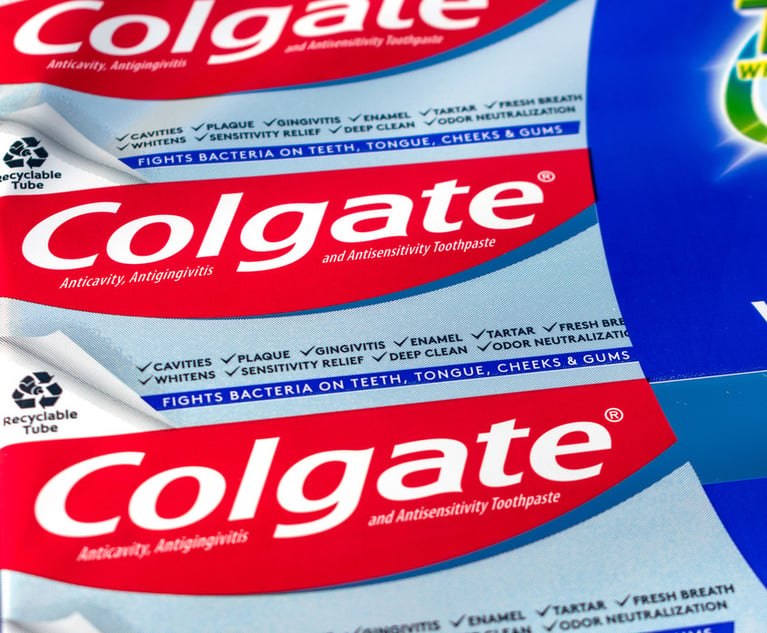How Law Firm Client Entertainment Has Changed: The Morning Minute
The news and analysis you need to start your day.
August 30, 2023 at 06:00 AM
4 minute read

Want to get this daily news briefing by email? Here's the sign-up.
WHAT WE'RE WATCHING
DON'T LIE ABOUT A.I. - The FTC's first-of-its-kind case against Automators LLC could portend more FTC claims against companies that allegedly seek to attract investors with bloated artificial intelligence-related promises, consumer protection lawyers told Law.com's Maydeen Merino. The FTC filed suit this month against Automators' operators, alleging they lured consumers into investing $22 million in online stores with baseless claims about profits. The agency also stated the operators claimed to use "AI machine learning" to maximize earnings. Automators has denied the allegations of wrongdoing. It's the first individual case the FTC has brought related to AI scams and is in keeping with recent agency pronouncements, said Daniel Kaufman, a partner at Baker & Hostetler. "The FTC more so than anything [has] been talking about AI a lot," Kaufman said. "The FTC is looking at these dramatic changes in the marketplace … but it's also looking at it through the lens of how might these changes and these tools be used in ways that violate the FTC Act."
NO MIDDLE FOR MIDSIZE FIRMS - So far, 2023 has been a good year for midsize law firms—well, some midsize law firms. On one hand, they've seen higher demand growth than their Am Law 200 peers. On the other hand, several have shuttered services or are preparing to do so, including Philadelphia-based Schnader Harrison Segal & Lewis and Dolchin Slotkin & Todd; New York-based Ganfer Shore Leeds & Zauderer, and most recently, Phoenix-based Jennings, Strouss & Salmon. As Law.com's Andrew Maloney reports, a variety of factors are contributing to the diverging trajectories of midsize law firms this year, according to analysts. Some are seeing success because of their additional flexibility and remote work opportunities for talent, the rise of countercyclical practices, and aggressive rate hikes. But this segment of the market is still vulnerable to large, existential threats, such as aging lawyers, a lack of succession planning, and less diversity of client business—any one of which could topple a smaller firm.
ON THE RADAR - Antoine Fuqua, director of "Training Day" and other major films, Sony Pictures Entertainment and other defendants were slapped with a lawsuit alleging breach of oral contract on Aug. 28 in California Superior Court for Los Angeles County. The court action was filed by attorney Philip J. Kaplan on behalf of Paul Lozada, a highly decorated former San Francisco police officer known for working as a "script doctor" on Fuqua's films. Lozada claims he has been denied credit and not been paid for consulting on the upcoming "Equalizer" sequel with Denzel Washington. Counsel have not yet appeared for the defendants. The case is 23STCV20557, Lozada v. Fuqua. Stay up on the latest state and federal litigation, as well as the latest corporate deals, with Law.com Radar.
EDITOR'S PICKS
|
This content has been archived. It is available through our partners, LexisNexis® and Bloomberg Law.
To view this content, please continue to their sites.
Not a Lexis Subscriber?
Subscribe Now
Not a Bloomberg Law Subscriber?
Subscribe Now
NOT FOR REPRINT
© 2025 ALM Global, LLC, All Rights Reserved. Request academic re-use from www.copyright.com. All other uses, submit a request to [email protected]. For more information visit Asset & Logo Licensing.
You Might Like
View All
How This Dark Horse Firm Became a Major Player in China

Colgate Faces Class Actions Over ‘Deceptive Marketing’ of Children’s Toothpaste

Internal Whistleblowing Surged Globally in 2024, So Why Were US Numbers Flat?
6 minute read
Law Firms Mentioned
Trending Stories
Who Got The Work
J. Brugh Lower of Gibbons has entered an appearance for industrial equipment supplier Devco Corporation in a pending trademark infringement lawsuit. The suit, accusing the defendant of selling knock-off Graco products, was filed Dec. 18 in New Jersey District Court by Rivkin Radler on behalf of Graco Inc. and Graco Minnesota. The case, assigned to U.S. District Judge Zahid N. Quraishi, is 3:24-cv-11294, Graco Inc. et al v. Devco Corporation.
Who Got The Work
Rebecca Maller-Stein and Kent A. Yalowitz of Arnold & Porter Kaye Scholer have entered their appearances for Hanaco Venture Capital and its executives, Lior Prosor and David Frankel, in a pending securities lawsuit. The action, filed on Dec. 24 in New York Southern District Court by Zell, Aron & Co. on behalf of Goldeneye Advisors, accuses the defendants of negligently and fraudulently managing the plaintiff's $1 million investment. The case, assigned to U.S. District Judge Vernon S. Broderick, is 1:24-cv-09918, Goldeneye Advisors, LLC v. Hanaco Venture Capital, Ltd. et al.
Who Got The Work
Attorneys from A&O Shearman has stepped in as defense counsel for Toronto-Dominion Bank and other defendants in a pending securities class action. The suit, filed Dec. 11 in New York Southern District Court by Bleichmar Fonti & Auld, accuses the defendants of concealing the bank's 'pervasive' deficiencies in regards to its compliance with the Bank Secrecy Act and the quality of its anti-money laundering controls. The case, assigned to U.S. District Judge Arun Subramanian, is 1:24-cv-09445, Gonzalez v. The Toronto-Dominion Bank et al.
Who Got The Work
Crown Castle International, a Pennsylvania company providing shared communications infrastructure, has turned to Luke D. Wolf of Gordon Rees Scully Mansukhani to fend off a pending breach-of-contract lawsuit. The court action, filed Nov. 25 in Michigan Eastern District Court by Hooper Hathaway PC on behalf of The Town Residences LLC, accuses Crown Castle of failing to transfer approximately $30,000 in utility payments from T-Mobile in breach of a roof-top lease and assignment agreement. The case, assigned to U.S. District Judge Susan K. Declercq, is 2:24-cv-13131, The Town Residences LLC v. T-Mobile US, Inc. et al.
Who Got The Work
Wilfred P. Coronato and Daniel M. Schwartz of McCarter & English have stepped in as defense counsel to Electrolux Home Products Inc. in a pending product liability lawsuit. The court action, filed Nov. 26 in New York Eastern District Court by Poulos Lopiccolo PC and Nagel Rice LLP on behalf of David Stern, alleges that the defendant's refrigerators’ drawers and shelving repeatedly break and fall apart within months after purchase. The case, assigned to U.S. District Judge Joan M. Azrack, is 2:24-cv-08204, Stern v. Electrolux Home Products, Inc.
Featured Firms
Law Offices of Gary Martin Hays & Associates, P.C.
(470) 294-1674
Law Offices of Mark E. Salomone
(857) 444-6468
Smith & Hassler
(713) 739-1250











